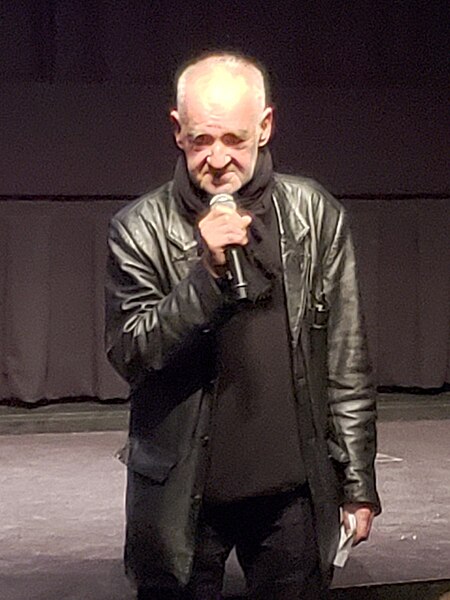László Krasznahorkai is a Hungarian novelist and screenwriter known for difficult and demanding novels, often labeled postmodern, with dystopian and melancholic themes. Several of his works, including his novels Satantango and The Melancholy of Resistance, have been turned into feature films by Hungarian film director Béla Tarr.
László Krasznahorkai
Béla Tarr is a Hungarian filmmaker. Debuting with the film Family Nest (1979), Tarr began his directorial career with a brief period of what he refers to as "social cinema", aimed at telling everyday stories about ordinary people, often in the style of cinema vérité. Over the next decade, he changed the cinematic style and thematic elements of his films. Tarr has been interpreted as having a pessimistic view of humanity; the characters in his works are often cynical, and have tumultuous relationships with one another in ways critics have found to be darkly comic. Almanac of Fall (1984) follows the inhabitants of a run-down apartment as they struggle to live together while sharing their hostilities. The drama Damnation (1988) was lauded for its languid and controlled camera movement, which Tarr would become known for internationally. Sátántangó (1994) and Werckmeister Harmonies (2000) continued his bleak and desolate representations of reality, while incorporating apocalyptic overtones. The former sometimes appears in scholarly polls of the greatest films ever made, and the latter received wide acclaim from critics. Tarr would later compete at the 2007 Cannes Film Festival with his film The Man from London, which opened to moderately positive reviews.

Tarr at the Midnight Sun Film Festival in Sodankylä, Finland (2012).
Béla Tarr in 1983
Tarr presenting a film by Hu Bo in 2018




